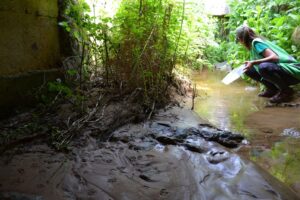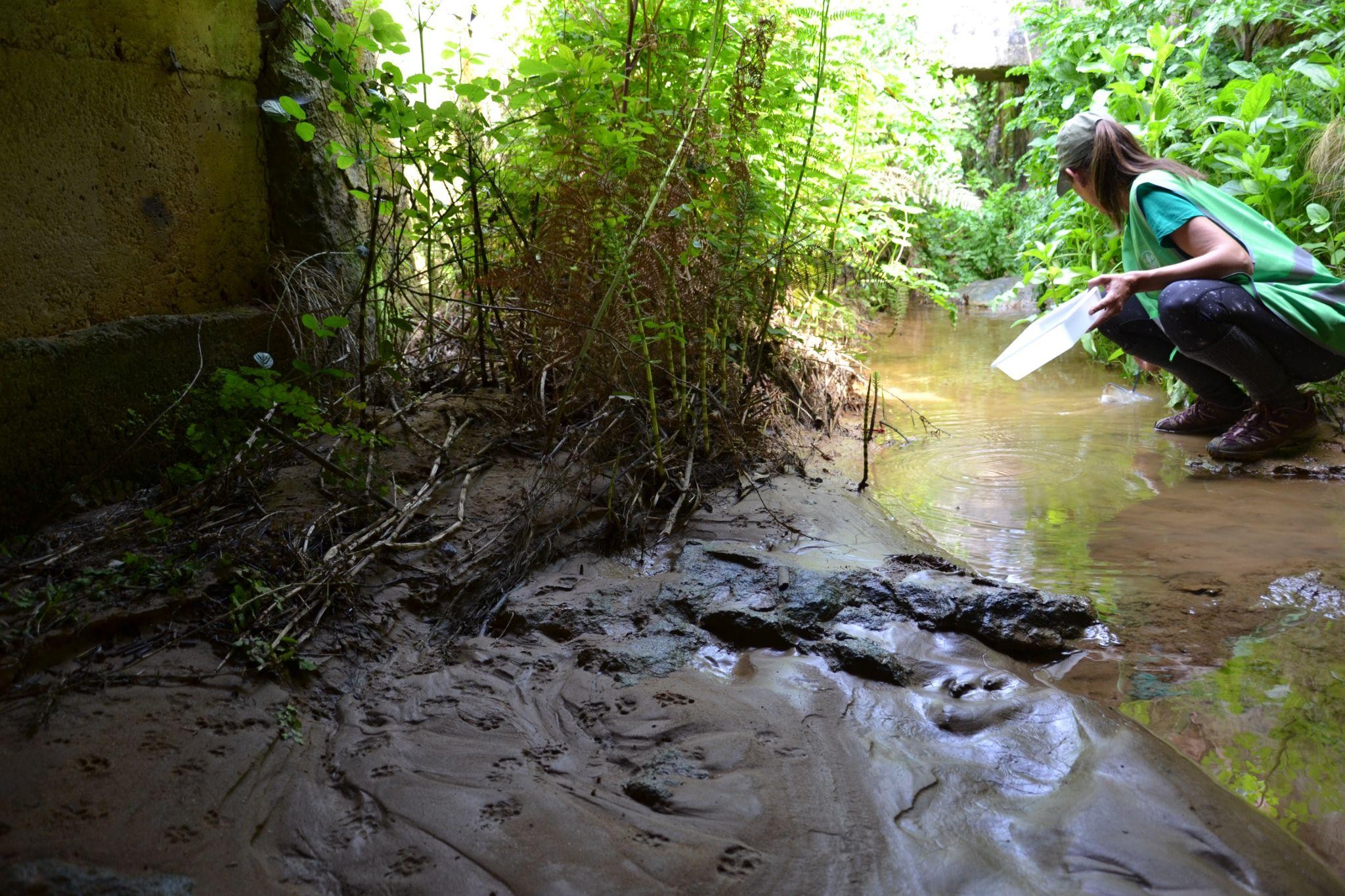Lourambi is a NGO (non governmental organization) that has the objective of protecting the environment and landscape of Lourinhã. It’s entirely made up of volunteers and there have been more than 300 of them, and it was founded in 1992.
This organization created, during the pandemic, the Kingfisher project to monitor the water quality of the Grande and Toxofal rivers. They collected various data along these rivers. They compiled data on temperature, pH, water volume, nutrients, and bioindicators. Each of these elements is very important for assessing the water quality in this region. Monitoring through bioindicators is a method that uses invertebrate organisms to determine the level of pollution in the water. Certain organisms are more resistant to disturbances caused by pollution than others, so it is possible to observe the health of the river by analyzing the animals that are present in it.
After applying the process previously described, they concluded that the quality of these waters was compromised. It is expected that in a second phase of this project, they will be monitoring all the tributaries of these two rivers, so that the origin of these disturbances can be located and their effects countered. It is due to the poor quality of the water present in these rivers that the local authorities are forced to close the drainage at Areia Branca beach, so it doesn’t cause allergies or other problems to the people in the beach.

In Lourinhã, rich biodiversity faces threats from human activity. The Kingfisher Project brings together those ready to protect it.
The biggest difficulties this organization faced in the beginning of its history were the lack of funding, recognition and respect. “We used to send emails asking for simple stuff and they wouldn’t respond”, says Mafalda Lourenço, president of Lourambi. These problems have diminished with time, the organization has grown, it has become an important part of the environmental struggle in Lourinhã and the Calouste Gulbenkian Foundation gave Lourambi 14.000 €. This money is going to be sent in 3 parts. The first one was already transferred, and the funds were spent on lectures and other related activities. Sometimes, they also buy seeds from “Sementes de Portugal” (seeds from Portugal) and spread them on their research trips around the river. Another example of an income source is the village vegetable garden, where the partners can pay 10 € and get access to 30m² for 3 months, this brings in around 2000 € per year. Being a Lourambi partner is free until age 25.
The existence of people with many different academic and professional backgrounds is very important for this project. For example, Mafalda Lourenço has a degree in Law, which helps with any legal work the organization may have to face, “This shows that you don’t need to be a biologist to be involved in this, anyone can join”.
In conclusion, continuous monitoring of the quality of these rivers helps us understand the importance of their biodiversity as well as the disturbances to which they are subject. In order for this project to be recognised and show its importance, it is of great relevance to raise awareness among the population, so that they can learn and contribute to the sustainability of these rivers.
The President of the Lourambi project, Mafalda Lourenço, confesses that her dream is “To be able to be on Areia Branca beach without having to close the river outlet, so that the children could play in it without any problems”.




You must be logged in to post a comment.